Night and Day

Brief Synopsis
Cast & Crew
Michael Curtiz
Cary Grant
Alexis Smith
Monty Woolley
Ginny Simms
Jane Wyman
Film Details
Technical Specs

Synopsis
Yale University law student Cole Porter's studies suffer because of his interest in the theater. During the 1914 Christmas holidays, Cole travels home to Indiana with his sympathetic law professor, Monty Woolley, and his friend, Ward Blackburn. Also visiting the Porter home are Cole's cousin Nancy and her roommate, the well-to-do Linda Lee. At home, Cole tells his disapproving grandfather Omer that he does not intend to return to Yale, but will instead try to earn a living as a songwriter. Upon returning to the city, Cole and Monty put together a theatrical show called See America First , starring Cole's friend, Gracie Harris. Nancy, Ward and Linda are in the audience on opening night, but Cole's mother remains in Indiana with his grandfather, who refuses to come. The Lusitania is sunk by the Germans the same night, and Cole's show closes after one performance. Cole then joins the French army and is injured. While recuperating in a French hospital, he encounters Linda, who is working there as a nurse. In an effort to ease Cole's despondency, Linda buys a piano for the hospital and Cole recovers enough to write "Night and Day." Linda proposes that Cole join her in a villa on the Riviera, and although Cole loves Linda, he explains that he does not want to take her money anymore than he wanted to take his family's money and intends to return to America to work on his own. In New York, Cole takes a job playing the piano in a music store. Tired of trying to sell the same old songs, Cole's partner, singer Carole Hill, sings one of his compositions, and encouraged by its warm reception, Cole and Monty, who is now working as an actor, produce another show, The New Yorkers . This show is an enormous hit, as is Cole's following show. Eventually Cole is offered the opportunity to write a show in England. There he once again meets Linda, whom he has never stopped loving, and they marry. Immediately after the wedding, Cole and Linda return to New York, where Cole goes into production on yet another show. Cole continues to promise Linda that they will take a trip together, but as soon as one show is completed, he begins another. Finally, Linda becomes tired of Cole's promises and leaves for Europe alone. When Cole's mother telephones with the news that his grandfather is dying, Cole immediately flies to Indiana, and before Omer dies, he and Cole are reconciled. A disheartened Cole stays on in Indiana and, during a storm, is severely injured when he is thrown by a horse. The injury aggravates Cole's war wounds, and he loses the use of his legs. Before he undergoes a long series of operations, Cole forbids Monty to tell Linda about his injury. Later, Cole attends a tribute at Yale. Monty arranges for Linda to surprise him there, and the couple is reunited.

Director

Michael Curtiz
Cast

Cary Grant

Alexis Smith

Monty Woolley

Ginny Simms
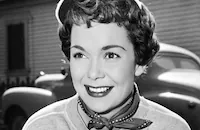
Jane Wyman
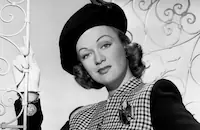
Eve Arden
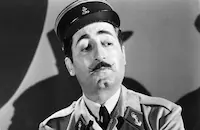
Victor Francen

Alan Hale

Dorothy Malone

Tom D'andrea

Selena Royle
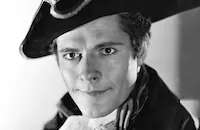
Donald Woods
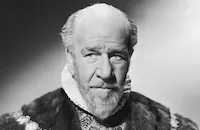
Henry Stephenson

Paul Cavanagh

Sig Ruman
Carlos Ramirez
Milada Mladova
Estelle Sloan
George Zoritch
Adam Digatano
Jayne Digatano

Mary Martin
Jimmie Dodd
John Compton
Boyd Davis
Frank Dae
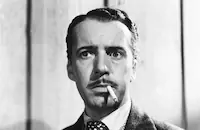
Boyd Irwin
Sam Flint
Charles Miller
John Miles
Art Kassel
Paul Garkie
Laddie Rucker

John Alvin
Harlan Briggs
Harry Seymour
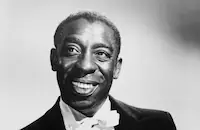
Clarence Muse

Jo Ann Marlowe
Regina Wallace
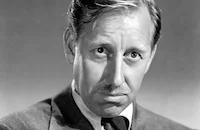
Frank Ferguson
George Meader
Virginia Sale
Bertha Woolford
Armba Dandridge
Gregory Muradian
Lisa Golm
Ernest Golm
John Goldsworthy
Garry Owen
Henry Hastings
Louis Gasnier
Crane Whitley

Lynne Baggett
Rebel Randall
Arlyne Roberts
Paula Drew
Pat Clark
Jane Harker
Creighton Hale
Frank Elliott
Paul Gustine
Bob Mckenzie
Alan Schute
Bill Nind
Eric Wilton
Edgar Caldwell
George Volk
Allen Marston
Leon Lenoir
Mischa Panaieff
Pierre Duval
Ellen Lowe
Joan Winfield
Ruth Matthews
Betty Blair
Valerie Ardis
Edna Morris
Paula Mae
Eva Novak
Emile Kilb
Bernard Deroux
Marie Melesh
Adrian Dooshout
Rene Mimieux
Fred Dosh
Maurice Brierre
Albert Petit
Frank Marlowe
Rune Hultman
Peter Camlin
George Riley

Fern Emmett
Dick Erdman

Robert Arthur
Caren Marsh
Patsy Harmon
Dorothy Reisner
Claire Meade
Charles Williams
Mayo Newhall
George Nokes
Gordon Richards
Laura Treadwell

Howard Freeman
Bobby Watson
Philip Van Zandt
Harry Crocker
John "red" Pierson
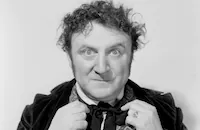
Herman Bing
Tom Herbert
Gladys Turney
Chester Clute
Dick Bartell
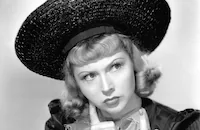
Joyce Compton
Helen O'hara
Susanne Rosser
Louis Quince
Marion Gray
Rudy Friml
Willis Claire
Leota Lorraine
Eddie Kelly
Helen Pender
William A. Boardway
Jack Richardson
Tom Mcguire
Ed Biby
Laurie Sherman
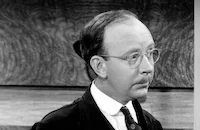
Hobart Cavanaugh
Almira Sessions
Gene Garrick
Jack Chefe

Eddie Kane
Hans Herbert
Wheaton Chambers
Henry Desoto
George Suzanne
Nick Stewart
Jacqueline Milo
Skelton Knaggs
George Kirby
Wally Scott
Colin Kenny
Herbert Evans
Mike Lally
Gladden James
Dick Earle
J. M. Johnstone
Buddy Gorman
Harold Debecker

Jack Mower
Elizabeth Valentine
Cyril Ring
Vivian Oakland
Pat Gleason
Don Roy
Barbara Slater
Gloria Anderson
Ruth Costello
Dorothy Costello
George Boyce
Fred Deming
Bert Moorhouse
Marshall Ruth
Fred Santley
Joe Kirkwood
Gene Stanley
John Vosper
Crew
Milton Ager
Gene Alden
Gerald W. Alexander
Milo Anderson
Fred Applegate
Miriam Bellah
Diane Bernard
Lester H. Blackburn
William Bowers
Everett A. Brown
Herschel Brown
Jean Burk
Robert Burks
Dudley Chambers
Herschel Daugherty
Paul Detlefsen
Rex Dewitt
Betty Dietrich
Leonard Doss
George Dye
Leo F. Forbstein
Charles David Forrest
David Forrest
Jack Fresholtz
Bert Glennon
Ida Greenfield
Frank Heath
Ray Heindorf
Charles Hoffman
John Hughes
Natalie Kalmus
Cliff King
Mario Larrinaga
James Leicester
Pat Malone
Peverell Marley
Armor Marlowe
Wiley Martin
William Mcgann
Mel Merrihugh
Jack Moffitt
George Nogle
Herbert Plews
Cole Porter
Jean Porter
Norman Pringle
Leroy Prinz
Roe Ramsey
Leon Roberts
Arthur Schwartz
Clair Sealey
Sue Shannon
William V. Skall
Harvey L. Slocomb
Eric Stacey
Max Steiner
Leo Townsend
Travilla
Robert Turner
Robert Vreeland
Jack L. Warner
Robert G. Wayne
David Weisbart
Perc Westmore
Jack Yellen

Photo Collections
Videos
Movie Clip





Trailer
Film Details
Technical Specs

Award Nominations
Best Score
Articles
Night and Day
Night and Day professes to give us the true story of Cole Porter; but in reality, it's just a grand showcase for Cole Porter's most famous tunes. Seamless set pieces shot in vivid Technicolor are highlighted by dazzling dance numbers and glamorous fashions, but music is always at the center of everything. Some of the highlights include Cary Grant and Ginny Simms performing a medley of Porter's songs originally introduced on Broadway by Ethel Merman. And, yes, Cary holds his own, especially while warbling, "You're the Top." There's a bright and colorful song and dance mini-operetta performed to "Begin the Beguine." And the inimitable Mary Martin reprises her polite striptease number, "My Heart Belongs to Daddy." She initially introduced the tune in the Broadway musical, Leave it to Me (1938). Some of the other songs featured in Night and Day are popular favorites like "I've Got You Under my Skin," "I Get a Kick Out of You," "Let's Do It," and "What Is This Thing Called Love." This elegant collection of tunes seems to summarize Porter's sensual approach to life: lush, rhythmic melodies with witty and sometimes risqu¿yrics.
Born into wealth in Indiana, Porter had to struggle very little in his chosen career, but his health was a different matter; he suffered physical hardships and was subjected to over thirty operations in his lifetime. His near crippling leg injuries he supposedly attributed from time to time to his stint with the French Army during World War One. However, most biographers claim that Porter had a creative imagination and that all of his injuries were acquired as a result of a horse falling on him. In actuality he was never a soldier in the French Army, but a member of a relief organization in France during the war, where he spent most of his time organizing and enjoying an endless series of parties. And of course, because Night and Day was made in 1946, there is no mention of Porter's homosexuality or of his actual "war" experiences. Nor was there any hint that his marriage to older divorcee, Linda Howard, was strictly a marriage of convenience. The fact that Linda's ex-husband had been abusive and that Cole was gay made their business-like marriage more agreeable to both. Yet, Linda was always one of Porter's chief supporters, both spiritually and financially, until her death in 1954. Unfortunately, Cole Porter's last years were not happy ones. He finally had to have one of his legs amputated in 1958, and after that he led a lonely and reclusive life. In 1960 Yale honored him with a honorary doctorate. He died in October of 1964 at the age of 72, leaving behind a rich, voluminous musical legacy.
Night and Day was Cary Grant's first film in color, and it gave him a chance to strut in what is essentially a musical. He had turned down all other opportunities to work that year before deciding to do the Porter biography. At the time, his marriage to Barbara Hutton was breaking up and in one last effort to patch things up, he had taken an extended "home vacation" in an attempt to revive his relationship with his heiress wife. However, this did little to keep the two of them from growing apart, especially after Barbara's son, Lance, was taken from the Grant home by his biological father. Feeling isolated and alone, Grant finally decided to immerse himself in acting once again, and agreed to play Cole Porter in Night and Day after repeated encouragements from the actual composer.
Although he hadn't worked in a year, and was suffering from the effects of marital discord, Grant was still able to stir up excitement on the set. Co-star Alexis Smith, who plays Linda Howard, had a fond memory of doing her first scene in the movie with Grant, one in which she and Grant were to kiss one another while standing under some mistletoe. As she remembers in Evenings With Cary Grant: Recollections in His Own Words and by Those Who Knew Him Best by Nancy Nelson, "The line following the kiss was mine. Well, when we came out of the kiss and I looked at him, I couldn't remember my name, much less my line...I was in a state of shock. It hadn't been very long since I'd been a schoolgirl, sitting in the balcony at Saturday matinees on Hollywood Boulevard, swooning over Cary Grant."
Not all the memories from making Night and Day were pleasant ones. Being a perfectionist by nature, Grant created some problems on the set. According to Charles Higham and Roy Moseley in Cary Grant: The Lonely Heart, Grant caused difficulties for the makeup staff and felt little rapport with director Michael Curtiz, the same man who had directed Casablanca (1942) and had earned the reputation as a stern taskmaster. Grant also had a problem with the script, which would undergo many changes; several of them initiated by Grant. He complained about dialogue, characterizations and even the most minute details of the studio sets. According to Higham and Moseley's book, Alexis Smith remembers Grant reprimanding Curtiz concerning a shirt that Grant was asked to wear: "Do you see these cuffs? There's a quarter of an inch showing. It should be an eighth of an inch." This could sound like someone using his power for petty purposes. But to Smith this wasn't just some celebrity taking advantage of his stardom, this was a fine actor who was totally dedicated to his art and craft. As she later recounted, "I would rather have him be fussy about a quarter of an inch on a cuff and give the performance he did, because it was that care and attention that carried him through everything he did. His acting wasn't an eighth of an inch off."
Still, there were additional problems during the making of Night and Day. Monty Woolley suffered from a severe bladder problem; the cameraman, Bert Glennon, walked off the set when he overheard Curtiz criticizing his daily rushes; and an oppressive heat wave lowered the morale of almost everyone involved. Yet, despite all the problems, Night and Day opened to long lines at the box office. According to Warren G. Harris in Cary Grant, A Touch of Elegance, "In a period when the average movie ticket cost forty-one cents, Warner Brothers earned four million dollars in rentals." It was Grant's biggest moneymaker up to that time.
Producer: Arthur Schwartz
Director: Michael Curtiz
Screenplay: Jack Moffitt, Leo Townsend, William Bowers, Charles Hoffman
Costume Design: Milo Anderson, Travilla
Cinematography: J. Peverell Marley, William V. Skall
Editing: David Weisbart
Music: Max Steiner
Art Direction: John Hughes
Cast: Cary Grant (Cole Porter), Alexis Smith (Linda Lee Porter), Monty Woolley (as himself), Ginny Simms (Carole Hill), Jane Wyman (Gracie Harris), Eve Arden (Gabrielle), Alan Hale (Leon Dowling), Dorothy Malone (Nancy), Victor Francen (Anatole Giron), Tom D'Andrea (Bernie), Henry Stephenson (Omar Cole).
C-129m. Closed captioning.
by Joseph D'Onofrio

Night and Day
Cary Grant: The Signature Collection
Warner Home Video (WHV) is proud to celebrate Cary Grant's centennial with the Signature Collection DVD debut of five films from Hollywood's acclaimed screen legend whose gallantry and courtly charm spanned an illustrious career of 76 films. This collection includes Mr. Blandings Builds His Dream House, The Bachelor and The Bobby-Soxer, My Favorite Wife, Destination Tokyo and Night and Day. Each of the DVDs includes the extra bonus features
. "Grant was indeed Hollywood's quintessential leading man," says George Feltenstein, WHH's Senior Vice President Classic Catalog. "Equally comfortable at comedy or drama, his popularity is unwavering and is still the standard by which romantic, sophisticated leading men are judged."
Once told by an interviewer "Everybody would like to be Cary Grant," Grant is said to have replied: "So would I." Born Archibald Leach in Bristol, England, on January 18, 1904, Grant left school at 14 to join the Bob Pender Troupe of knockabout comedians touring the English provinces. In 1920, Grant first came to America when the troupe appeared on Broadway in Good Times.
In 1933, Mae West picked Grant for She Done Him Wrong and I'm No Angel and his movie career was off and running. In the late '30s, Grant became one of the first stars to work as a "free agent," making films for multiple studios including MGM, Columbia and RKO. In 1936, he first teamed with Katharine Hepburn and director George Cukor for Sylvia Scarlett, the initial film to fully demonstrate Grant's inspired comic flair. Among the films that followed were The Awful Truth, Bringing Up Baby, His Girl Friday, Topper, Philadelphia Story, Suspicion, Arsenic and Old Lace and None but the Lonely Heart, for which he won an Oscar® nomination. In 1970, the actor was given a special Academy Award® for career achievement.
Notably, Grant appeared in four of Alfred Hitchcock's best films, including the romantic thrillers North by Northwes with Eva Marie Saint; Notorious opposite Ingrid Bergman; Suspicion opposite Joan Fontaine and To Catch A Thief with Grace Kelly. Seemingly growing more handsome and charming as he got older, Grant retained his star status into the 1960s, appearing in such box-office hits as Operation Petticoat and Charade. He retired from the screen in 1966, but spent the next twenty years in the public eye, as a board member for companies such as Faberge, MGM and Hollywood Park. Despite constant offers, Grant refused to return to the screen, although he did consent to a series of retrospective Q&A evenings across America with his beloved fans. He enjoyed the experiences immeasurably, as did the audiences. It was in Davenport, Iowa while rehearsing for one of these "in-person" events that Cary Grant suffered a sudden stroke and died on November 29, 1986.
The Films in Cary Grant: The Signature Collection
Mr. Blandings Builds His Dream House - Goodbye city life; hello Connecticut, with plenty of laugh stops along the way. This movie classic - named by AFI as one of America's 100 Funniest Movies - about the frustrations and joys of building and owning a home features Grant as a New York ad exec who's taken on the task of building a house from the ground up. Will he lose everything, including his sanity, or become a happy suburban homeowner? Myrna Loy, as his extremely patient wife and Melvyn Douglas join in the fun.
Mr. Blandings Builds His Dream House will have the following extra content:
· Two Radio Productions:
- October 10, 1949 LUX Radio Theatre Broadcast starring Grant and Irene Dunne
- June 9, 1950 Screen Directors Playhouse Broadcast starring Grant and (his then-wife) Betsy Drake
· "The House of Tomorrow" Classic M-G-M Tex Avery Cartoon
· Cary Grant Trailer Gallery
· Theatrical Trailer
The Bachelor and The Bobby-Soxer - 1947 Academy Award® winner for Best Original Screenplay (by Sidney Sheldon), the film stars Cary Grant with Myrna Loy and a teen-aged Shirley Temple. In this very entertaining romantic comedy, Grant plays Richard Nugent, a bachelor minding his own business who finds a love-sick girl (Shirley Temple) asleep on his couch. The older sister of the teen is a Judge (Myrna Loy), and she "sentences" Nugent to go out with the bobby-soxer until she is no longer infatuated.
The extra features included on the DVD are:
· June 13, 1949 LUX Radio theatre Radio Production starring Grant and Temple
· "Little Tinker" Classic Tex Avery M-G-M cartoon
· Cary Grant Trailer Gallery
· Theatrical Trailer
My Favorite Wife - Grant skillfully plays the romantic hunk and the comedic buffoon in this movie about marital mix-ups. Nick Arden (Grant) is on his way to the honeymoon suite with his new bride (Gail Patrick) when he runs into the wife (Irene Dunne) who was lost at sea and presumed dead seven years ago. The marriage knots have to be untied as the real Mrs. Arden steps up to claim her husband in this quirky romance filled with high jinks and big laughs.
My Favorite Wife will contain the following bonus content:
· Vintage M-G-M Robert Benchley short subject "Home Movies"
· December 7, 1949 Screen Director¿s Playhouse Radio Production starring Grant and Dunne
· Theatrical Trailer
Destination Tokyo - Grant is a military hero in this action-filled war drama. As Captain Cassidy, Grant pilots the U.S. submarine Copperfin through the dangerous waters of the enemy's front yard. Delmer Daves makes his directorial debut with this film that critics say remains "a classic war drama." This is the only military drama Grant made during World War II.
Destination Tokyo will contain these bonus features:
· Warner Bros. WWII short: "Gem of the Ocean"
· Cary Grant Trailer Gallery
· Theatrical Trailer
Night And Day - Appearing in his first Technicolor motion picture, Grant portrays Cole Porter, the legendary, sophisticated songwriter whose life was marked by triumph and tragedy. He's joined by a superb cast including Alexis Smith, Jane Wyman, Eve Arden and Monty Woolley as himself. The film contains more than 20 of Porter's songs which have been enjoyed by many generations over the years. One of the film's most famous moments is Mary Martin re-creating her Broadway performance of "My Heart Belongs to Daddy," the show-stopper that made her an overnight star. Even Cary gets into the act singing "You're the Top" with `40s chanteuse Ginny Simms. Interestingly, Hollywood is once again bringing Porter's life to the screen later this year, with Kevin Kline portraying the composer in Irwin Winkler's film "DeLovely."
The extra content in Night And Day will be:
· Vintage Warner Bros. Shorts: Desi Arnaz and His Orchestra and "Musical Movieland"
· Bugs Bunny and Elmer Fudd in "The Big Snooze" a classic Looney Tunes cartoon
· Cole Porter Trailer Gallery
Each DVD will be presented in a format preserving the aspect ratio of its original theatrical exhibition and will include subtitles in English, French and Spanish. All except The Bachelor and The Bobby-Soxer are in Dual-Layer format.
To order Cary Grant: The Signature Collection, click here. Explore more Cary Grant titles here.
Cary Grant: The Signature Collection
Quotes
Trivia
Notes
Songwriter Cole Porter was born into a wealthy family in Peru, IN on June 9, 1891. He was educated at Yale University and studied law at Harvard. In 1916, his first musical comedy, See America First, failed after fifteen performances. In 1919, he married Linda Lee Thomas, a wealthy, socially prominent divorcee, eight years older than he. Biographies have indicated that Porter, a secret homosexual, and his wife lived separate lives for much of their marriage. Porter wrote many successful shows including Fifty Million Frenchmen, Wake Up and Dream, Anything Goes, DuBarry Was a Lady and Silk Stockings, as well as film scores. Contrary to the film's story, Monty Woolley was not a professor of Porter's, but a fellow student, and Porter was never wounded in World War I, although he did have a serious horseback riding accident in the mid-1930s which eventually resulted in the amputation of one leg in 1956. The film's credits state that it was "based on the career of Cole Porter." The chronology of Porter's songs and musical plays was altered for the film. Modern sources speculate that the character of "Carol Hall" was based on Ethel Merman. Mary Martin first attracted attention for her singing of "My Heart Belongs to Daddy" in Porter's musical Leave It To Me, and the song became her signature. Night and Day marked Martin's last major film appearance, although she did appear as herself in the 1953 M-G-M release Main Street to Broadway.
Hal B. Wallis was slated to produce the picture, but left the studio before the start of filming because of a disagreement with Jack L. Warner. According to a September 20, 1945 Hollywood Reporter news item, the film's pre-production costs were almost $4,000,000, with $1,000,000 being spent just on developing the script. Papers in the Warner Bros. Collection at the USC Cinema-Television Library add the following information about the production: Elick Moll, Steve Fisher, Tom D'Andrea, Philip G. Epstein, Stephen Morehouse Avery and Joseph Than all worked on various versions of the screenplay. The extent of their contribution to the final film is not known. In a telegram dated September 15, 1945, Jack Moffitt, who is credited onscreen with the adaptation, protested his credit. The scenes at Yale University were actually filmed on location at Los Angeles City College, CA. Other scenes were filmed in California at the Busch Gardens in Pasadena, the Warner Bros. Ranch, the Providencia Ranch in Universal City and in Beverly Hills. Cinematographer Bert Glennon was replaced by Peverell Marley on June 26, 1945, two weeks after production began. From 6 October to October 12, 1945, strike conditions stopped work on the film.
Ray Heindorf and Max Steiner were nominated for an Academy Award for their musical score. The film clip of Roy Rogers singing "Don't Fence Me In" is from the 1945 Republic picture of the same name. In 2004 De-Lovely, another film biography of Porter, was released. That film, directed by Irwin Winkler and starring Kevin Kline as Porter and Ashley Judd as his wife, combined musical numbers based on Porter's songs with biographical scenes. The film centered on the complex relationship between the Porters and the songwriter's bisexuality, a fact not publicly discussed until after his death in 1964.















